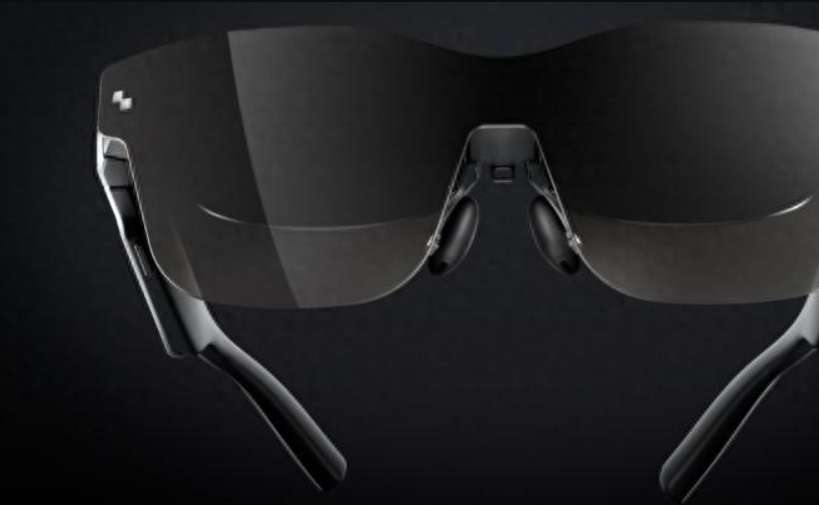Surge in AI Glasses Concept!
Advertisements
The stock market in China has shown ongoing lackluster performance, particularly in the A-shares sector, which has continued to face challengesHowever, amidst this dreary context, the theme of AI glasses has begun to emerge prominentlyOn January 3, several companies in this niche saw impressive increases in their stock prices, with Huazhan Optoelectronics witnessing a surge of 12.62%. Other notable performers included Victory Precision, Guoxing Optoelectronics, and Beiyi Co., all of which rose by 10%. Such remarkable gains reflect the market's growing interest in augmented reality (AR) and AI technologies in everyday wearable devices.
In the midst of these developments, a strategic partnership between RayNeo and Alibaba Cloud was announced, aimed at advancing the capabilities of AI glassesRayNeo, known for its consumer-grade AR products, intends to leverage Alibaba Cloud's advanced AI models to enhance the functionality and appeal of its own AI glasses
This collaboration illustrates the exciting potential for businesses in this space and is indicative of the increasing convergence between AI technology and consumer electronics.
Drawing closer, the International Consumer Electronics Show (CES) 2025, aka the tech world's annual "Spring Festival Gala," is set to take place in Las Vegas from January 7 to 10. This event is expected to be a pivotal moment, particularly in the realm of AI applicationsMany anticipate that AI glasses will take center stage with a plethora of innovative technologies and products on displayThis could include new offerings from leading companies like Dapeng Technology, which has hinted at showcasing its latest AI glasses.
One of the standout exhibits will be the joint presentation by RayNeo and TCL, introducing the AI photography glasses V3 and the AI+AR X3 Pro glassesExperts believe that CES 2025 could ignite intense competition in the AI glasses arena, paving the way for a significant leap in this sector
- Battery Investment Soars, But Output Growth Slows
- Sustained Growth of Spicy Snack Foods
- How to Profit in the A-Share Market?
- Gree's "Core" Strategy: A Breakthrough or Bust?
- Tuda Pursues Hong Kong Reverse Takeover
It is speculated that 2025 may very well be regarded as the "year of AI glasses,” marking a turning point in consumer tech trends.
The increasing spotlight on AI glasses can be attributed to several compelling advantages they holdUnlike traditional smart devices, glasses are among the most portable and convenient wearable gadgets available todayTheir close alignment with the user’s face allows for enhanced interaction capabilities - users can see and hear exactly what they would otherwise with their own sensesThis, combined with the latest AI developments, provides such devices with a seamless and interactive experience that is difficult to replicate with other smart gadgets.
Notably, several tech giants, including Meta, Google, and XREAL, have already brought their AI glasses products to marketMeta’s Ray-Ban Meta smart glasses, for example, have surpassed one million units in shipments this year, significantly exceeding market forecasts
This success has drawn considerable attention on platforms like Bilibili and Douyin, where users are sharing their experiences with the deviceMany have noted its convenience in capturing short videos from a first-person perspective, allowing for easy uploading to social media or even live streaming.
Previously, the biggest challenges for smart glasses were balancing weight, cost, and performanceHowever, it appears that Meta has effectively addressed these issues with the Ray-Ban Meta smart glasses, leading to an overall positive user experienceThis has prompted a wave of competition, with numerous Chinese technological powerhouses entering the market to create their versions of smart glasses spurred by Meta's enthusiasm.
In November of last year, Baidu unveiled its native AI glasses, Xiao Du AI glasses, featuring a Chinese AI modelAdditionally, Zhichu Technologies has announced collaborative ventures with various eyewear manufacturers to enhance their own product offerings

The vibrant prospects at CES 2025 signify a burgeoning ecosystem of domestic AI glasses manufacturers, backed by substantial industry interestZhou Hongyi, founder of 360, even predicted a scenario termed the "Hundred Glasses Battle," envisioning that every internet company would eventually develop their own smart glasses.
With glasses being such a universally adopted product genre – with annual sales exceeding 1 billion pairs – it seems only a matter of time before AI glasses capture a substantial slice of this pieEven if their market share remains small at present, forecasts suggest the potential for sales to breach the 10 million units mark in the coming years.
Research institutions predict that starting in 2025, AI glasses will begin to infiltrate the market of traditional eyewear amid its steady growth trajectoryBy 2029, annual sales of AI glasses could reach as high as 55 million units, and by 2035, projections soar to an astonishing 1.4 billion units sold
Companies like CITIC Securities note that as wearables, AI glasses offer consumers breakthrough efficiency at lower costs, suggesting that the market for these devices is vast and largely untapped.
As several publicly traded companies outline their strategies within the AI glasses space, there is a clear sign of optimismFor example, Doctor Glasses has confirmed stable partnerships with major brands like RayNeo and ROKIDAdditionally, chip manufacturer Fuhan Micro recently disclosed plans to roll out AI glasses chips by 2025, indicating a growing ecosystem of contributorsAs interest in AI glasses intensifies, these corporations are likely to experience increased investment and consumer interest.
However, the history of smart glasses has not been without its share of ups and downs, with the trend originating in 2012 with Google Glass experiencing several peaks and troughs in popularity